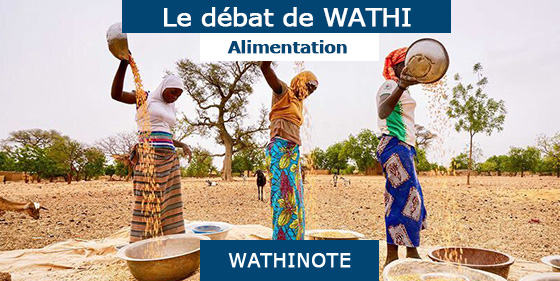

Author: By Abiola Odutola
Site of publication: Nairametrics
Type of publication: Article
Date of publication: May 11, 2020
The 2019 expenditure pattern report, which measures Nigeria’s spending pattern in both food and non-food items, revealed that of the total, 56.65% of the household expenditure in 2019 was spent on food, with the balance of about 43.35 spent on non-food items.
According to the definition, Household consumption refers to the amount spent personally by all Nigerians to acquire goods and services within the country. The data is based on household consumption only and excludes consumptions from the private sector, government, and exports.
Food consumed outside the home, followed by transportation costs and starchy roots, tubers, and plantains were responsible for the largest proportion of household expenditure, representing a combined 24.16% for total household expenditure in 2019.
How Nigerians Spend
In no particular surprise, 56.65% of Nigeria’s consumption expenditure was on food items. Transportation was second highest on the spending list with N2.5 trillion while health and education come next with N2.46 trillion and N2.42 trillion respectively. Also interesting to note that Nigerians spend more on telecoms than on rent, fuel/electricity.
Spending on Food
Nigerians spent a whopping N22.7 trillion on food between the period recorded for the survey. In clear evidence of Nigerians culinary preferences, skew more towards carbohydrates with Starchy Roots, Tubers, and Plantain dominating with about N2.5 trillion. Rice a major staple food item that the government has been looking to ban cost Nigerians about N1.9 trillion while vegetables cost N1.7 trillion.
In no particular surprise, 56.65% of Nigeria’s consumption expenditure was on food items. Transportation was second highest on the spending list with N2.5 trillion while health and education come next with N2.46 trillion and N2.42 trillion respectively

Urban and Rural Nigeria
The data also cut across various states in the country as well as urban and rural Nigeria. For example, in Rural Nigeria, after food which takes on 61.3% of consumption, healthcare takes on another 7.3%. Transport and education is next with 5.59% and 4.7% respectively.
However, in Urban Nigeria, Food represents 51.5% of expenditure followed by Education and Transport with 7.5% and 7.38% respectively. Telecommunication, rent, fuel, and electricity all fall between 6% and 7%.
In terms of State, 12.6% of National Spending occurs in Lagos State while Oyo and Delta are next with 5.83% and 5.38% respectively.
For a developing country like Nigeria, the consumption pattern is skewed towards food i.e. food is higher than the non-food items. In most developed countries, it is the opposite, where the consumption pattern is skewed towards non-food items. The more developed a society becomes, the less it spends on food and the more it spends on nonfood items. Lagos is a clear indication of a state with an emerging economy. Lagos state’s expenditure on non-food items was more than its expenditure on food
In Nigeria’s economic capital, Lagos State, Lagosians spent about N2.4 trillion on food items representing 48% of total consumption expenditure while 52% was on non-food items, the only state with that record. Next was Transport, Rent and Telecoms with 10.5%, 8%, and 7.5% respectively.
For a developing country like Nigeria, the consumption pattern is skewed towards food i.e. food is higher than the non-food items. In most developed countries, it is the opposite, where the consumption pattern is skewed towards non-food items. The more developed a society becomes, the less it spends on food and the more it spends on nonfood items. Lagos is a clear indication of a state with an emerging economy. Lagos state’s expenditure on non-food items was more than its expenditure on food.
Les Wathinotes sont soit des résumés de publications sélectionnées par WATHI, conformes aux résumés originaux, soit des versions modifiées des résumés originaux, soit des extraits choisis par WATHI compte tenu de leur pertinence par rapport au thème du Débat. Lorsque les publications et leurs résumés ne sont disponibles qu’en français ou en anglais, WATHI se charge de la traduction des extraits choisis dans l’autre langue. Toutes les Wathinotes renvoient aux publications originales et intégrales qui ne sont pas hébergées par le site de WATHI, et sont destinées à promouvoir la lecture de ces documents, fruit du travail de recherche d’universitaires et d’experts.
The Wathinotes are either original abstracts of publications selected by WATHI, modified original summaries or publication quotes selected for their relevance for the theme of the Debate. When publications and abstracts are only available either in French or in English, the translation is done by WATHI. All the Wathinotes link to the original and integral publications that are not hosted on the WATHI website. WATHI participates to the promotion of these documents that have been written by university professors and exper
